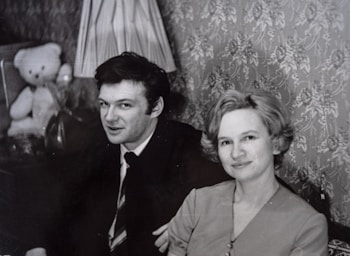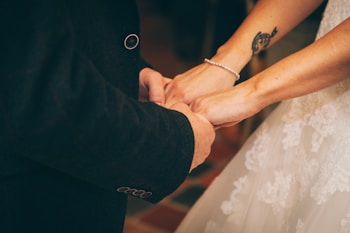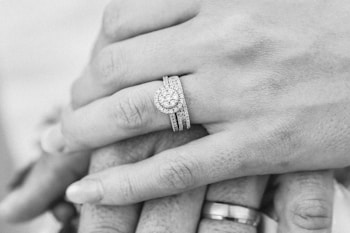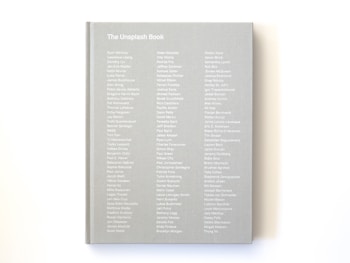 Personal Data in French
Personal Data in French
Explore commonly used vocabularies related to personal data in the French language.

espagnol
The French word 'espagnol' is used to refer to anything related to Spain, encompassing the language, culture, and people. It can be used as both an adjective to describe something as being Spanish, such as 'la cuisine espagnole' (the Spanish cuisine), or as a noun to refer to the Spanish language and its speakers.

extension
In French, the word 'extension' is used in a similar way to English, referring to an addition or expansion. For example, it can refer to a physical addition to a building, or an extension of a deadline. It can also refer to a phone extension, or an extension cord. It's important to note that the pronunciation is slightly different, with the emphasis on the second syllable.
Example sentences with extension →
féminin
In French, the word 'féminin' is used to describe something that is related to or characteristic of women, girls, or femininity. It can refer to gender, as in the grammatical gender of nouns, where 'féminin' indicates that a noun is feminine. Additionally, it is used in various contexts such as fashion, roles in society, and biological characteristics, signifying attributes typically associated with females.

gens
The French word for 'people' is 'gens'. It is used exactly like 'people' in English, to denote a group of individuals. Do note, 'gens' in French is plural and is usually accompanied by plural verb forms. For example, 'Les gens sont gentils' means 'People are nice'.
Example sentences with gens →habiter
The French word 'habiter' means to live in or to reside in a place. It is commonly used to describe where someone lives, such as 'J'habite à Paris' meaning 'I inhabit in Paris' or 'I live in Paris'. The verb can also be used in a broader sense to indicate presence or occupation of a space.

homme
The French word 'homme' is the equivalent of the English word 'man'. It is used to refer to an adult male human being. It can also be used more broadly to refer to any human being, regardless of gender, as in the phrase 'l'homme et la nature' (man and nature).
Example sentences with homme →
homosexuel
The word 'homosexuel' is used in French to describe a person who is attracted to members of the same sex, just like in English. It can refer to both men and women, although the feminine form 'homosexuelle' is used for women specifically. This term is commonly used in discussions about sexual orientation, relationships, and rights within the LGBTQ+ community in French-speaking contexts.

hétérosexuel
The French word 'hétérosexuel' refers to a person who is attracted to members of the opposite sex. It is used in the same context as in English, describing sexual orientation and relationships. In French, the term can be used in various grammatical forms, such as 'hétérosexuelle' for a female subject, and it is commonly seen in discussions about sexuality and gender.

japonais
In French, 'japonais' refers to something related to Japan, such as the language, culture, or people of Japan. It can be used as an adjective to describe things that are Japanese, like 'cuisine japonaise' for Japanese food, or as a noun to refer to the Japanese language or a Japanese person.

lieu de naissance
The French phrase 'lieu de naissance' refers to the location where a person was born. It is commonly used in official documents, such as birth certificates and identity papers, as well as in conversations about one's origins or family history. The term can be used to denote a city, town, or even a specific address, and it highlights the importance of geographical identity in personal and legal contexts.

madame
The French word 'madame' is a formal address used to refer to a woman, equivalent to 'Mrs.' in English. It is commonly used when speaking to a woman in a polite context or when you don’t know her marital status. 'Madame' can also be used in written communication, such as letters, to show respect. In restaurants or shops, staff may use this term to address female customers courteously.

mariage
In French, the word 'mariage' refers to the state of being married, similar to the English word 'marriage'. It is used in the same contexts as in English, such as referring to the legal or religious ceremony that formalizes the decision of two people to live as a married couple, including the accompanying social festivities. 'Mariage' can also refer to the institution of marriage as a social and legal concept.
Example sentences with mariage →
mariage civil
A 'mariage civil' refers to a legal marriage ceremony conducted by a state authority, rather than a religious institution. In France, it is the only legally recognized form of marriage and must be performed at a mairie (town hall) to ensure that the marriage is officially recorded and granted legal status. This type of wedding is essential for couples who wish to be married legally, as religious ceremonies do not have legal standing unless preceded by a marriage civil.

mariage de convenance
The French term 'mariage de convenance' refers to a marriage that is arranged for practical reasons rather than for love. This type of union is often based on social, economic, or political advantages, and it is characterized by a mutual agreement between the parties involved. In contemporary usage, it may carry a connotation of a lack of romantic affection or genuine emotional commitment.

mariage religieux
In French, 'mariage religieux' refers to a wedding ceremony that is conducted in a religious context, typically in a place of worship. This type of wedding often involves specific rituals and traditions associated with the faith of the couple, such as a church service or other religious ceremonies, and is seen as a sacred union blessed by a higher power.

marié
The French word 'marié' is the past participle of the verb 'se marier', which means 'to get married' or 'to marry'. It is used to describe someone who has entered into the state of matrimony. In French, the word can be used as an adjective to describe a person's marital status, as in 'Je suis mariée' (I am married), with the gender of the adjective agreeing with the subject. It can also be used as a noun to refer to a married person, typically a man ('un mariée' for a married man). The verb 'se marier' is a reflexive verb, indicating that the subject performs the action on itself, reflecting the reciprocal nature of marriage.

mature
The French word 'mature' is used similarly to its English counterpart, referring to someone or something that has reached an advanced stage of development or growth. In a personal context, it can describe a person who displays qualities such as wisdom, responsibility, and emotional stability. In other contexts, such as in cooking or wines, 'mature' indicates the completed process of aging, enhancing flavors or qualities.

maturité
In French, 'maturité' refers to the state of being fully developed or grown, typically applied to both individuals and situations. It encompasses emotional, psychological, and physical growth, indicating a level of readiness or wisdom gained through experience. The term can be used in various contexts, such as describing a person's character, the maturity of a plant or fruit, or the state of an idea or project.

messieurs
In French, 'messieurs' is the plural form of 'monsieur,' which means 'mister.' It is used as a polite way to address or refer to a group of men, similar to how 'gentlemen' is used in English. 'Messieurs' can be used in formal settings, such as during an introduction or when addressing an audience, to show respect and politeness.

mexicain
The word 'mexicain' is used in French to describe something that originates from Mexico, or to refer to Mexican culture, cuisine, or people. It functions as both an adjective and a noun, similar to its English counterpart, and is commonly used in contexts such as discussing food, traditions, or nationality.

mobile
The French word 'mobile' is used to refer to a mobile phone, just like in English. It is a common term in everyday conversation and is often used in contexts related to technology and communication.
Example sentences with mobile →
nationalité
The French word 'nationalité' is used to refer to the legal relationship between an individual and a nation, which grants them specific rights and obligations. It is commonly used in conversations about identity, citizenship, and cultural affiliation, and can apply to various contexts, such as legal documents, discussions about immigration, and social matters.

nom composé
In French, 'nom composé' refers to a name that is made up of more than one element, often combining first names or surnames. This structure is commonly used in many cultures to acknowledge lineage or family heritage, and it can include hyphenated names or names that are simply juxtaposed. For example, in French-speaking regions, it's common to see names like 'Jean-Luc' or 'Marie-Claire', which illustrate this concept of a composite name.
nom de famille
In French, 'nom de famille' refers to the family name or last name of a person, which is used to identify individuals within a family and is usually inherited from one or both parents. It is an important part of a person's identity and is commonly used in formal and legal documents.

nom de jeune fille
In French, 'nom de jeune fille' refers to a woman's last name before she gets married. It is commonly used in legal documents, forms, and conversations to identify a woman's identity before her marriage, as many women may change their last name after getting married. Understanding this term is important in French-speaking cultures, as it reflects personal history and family lineage.

nom de scène
In French, 'nom de scène' refers to a name that an artist, actor, or musician uses in public performances instead of their real name. This term is commonly used in the entertainment industry to create a persona that may be more memorable or marketable.

nouveau-né
In French, 'nouveau-né' refers specifically to a baby that has just been born, typically within the first few weeks of life. The term is used in medical contexts and everyday language to describe infants who are newly arrived and often emphasizes the fragility and development phase characteristic of newborns.

numéro de téléphone
In French, 'numéro de téléphone' refers to the series of digits used to make a telephone call to a specific person or organization. It is commonly used in both spoken and written language when sharing contact information, and it can be categorized as either a landline or mobile number. The phrase is used in everyday contexts, such as asking for someone's contact details or when filling out forms.

obtenir la séparation
The French phrase 'obtenir la séparation' refers to the act of achieving or acquiring a state of separation. It can be used in various contexts, such as legal matters (like divorce), interpersonal relationships, or even in business scenarios where separation of departments or assets is required.

personne d'un certain âge
The French phrase 'personne d'un certain âge' is used to refer to an individual who is typically older or in their senior years, often implying respect and consideration. It is a polite way to talk about older adults without specifying an exact age, recognizing the experience and wisdom that comes with age.